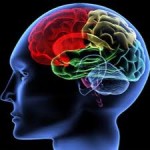Being Bilingual leads to Increased Brain Activity
 Dartmouth researchers have found areas in the brain that indicate bilingualism. The finding sheds new light on decades of debate about how the human brain’s language centers may actually be enhanced when faced with two or more languages as opposed to only one.
Dartmouth researchers have found areas in the brain that indicate bilingualism. The finding sheds new light on decades of debate about how the human brain’s language centers may actually be enhanced when faced with two or more languages as opposed to only one.
When bilinguals were simultaneously processing each of their two languages and rapidly switching between them (that is, in “bilingual mode”), they showed an increase in brain activity in both the left and the right hemisphere, with greater activation in the right. This seems to be a key indicator of the brain’s bilingual signature.
The researchers examined 20 people ranging from 18 to 30 years old (average age was 21.1 years). The monolingual speakers’ behavioral and brain activity were then compared to the bilingual speakers’ behavioral and brain activity while performing identical language processing tasks in “monolingual mode” (that is, in Spanish, and in English) or in “bilingual mode” (that is, when simultaneously processing and rapidly switching between their two languages). The Dartmouth team used the Hitachi ETG-4000 NIRS system.
“For decades, people have wondered whether the brains of bilingual people are different from monolinguals. People also worry that the brains of bilingual children are somehow negatively impacted by early experience with two languages,” explains Petitto, who also holds the John Wentworth Endowed Chair in the Social Sciences. “The present findings are significant because they show that the brains of bilinguals and monolinguals are similar, and both process their individual languages in fundamentally similar ways. The one fascinating exception is that bilinguals appear to engage more of the neural landscape available for language processing than monolinguals, which is a very good thing.”
The team proposes that bilingual language processing provides a new window into the extent of what nature’s neural architecture for language processing could be, if only we used it. Petitto adds, “The irony is that we may find it is the monolingual that is not taking full advantage of the neural landscape for language and cognitive processing than nature could have potentially made available.”



